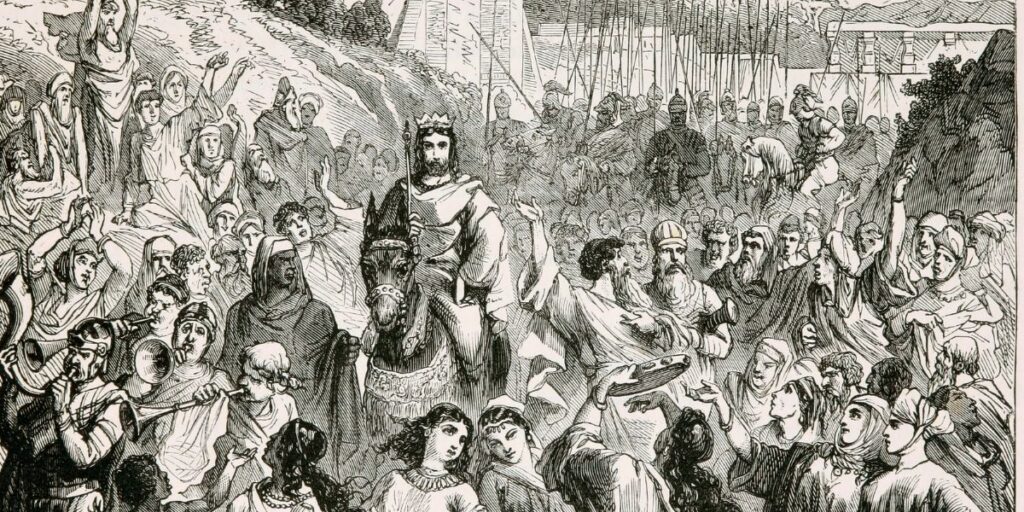King Solomon, the son of King David and the third monarch of Israel, is one of the most celebrated figures in ancient history. Renowned for his unparalleled wisdom, keen judgment, and immense wealth, Solomon’s leadership traits have inspired leaders across centuries. His story, largely chronicled in biblical texts, offers timeless lessons that resonate deeply with modern business environments.
In this blog post, we’ll explore the key traits that defined King Solomon’s leadership and how they can be applied to business today. Whether you’re a corporate executive, entrepreneur, or team leader, the wisdom of Solomon holds valuable insights for steering your business toward success.
1. Wisdom: The Cornerstone of Solomon’s Leadership
Trait Overview:
Solomon’s most defining trait was his extraordinary wisdom, famously granted by God after Solomon asked not for riches or long life, but for a discerning heart to govern his people. The most famous story demonstrating his wisdom is the “Judgment of Solomon,” in which he cleverly resolved a dispute between two women claiming to be the mother of the same baby by suggesting the child be cut in half, a ruse that revealed the true mother.
Application in Modern Business:
- Strategic Thinking: In today’s fast-paced business environment, strategic thinking is paramount. Leaders who are able to foresee potential challenges and devise creative solutions, much like Solomon, gain a significant competitive edge.
- Problem-Solving: Solomon’s ability to understand the root of problems, much like in his judgment between the two women, is critical for business leaders. Modern business leaders must balance emotional intelligence with logic to resolve conflicts within teams, between clients, or within the market.
- Big Picture Perspective: Solomon’s wisdom was not just in quick decisions, but in understanding long-term impacts. CEOs and managers today need the foresight to plan not just for the present but for the future, ensuring sustainability and growth for their enterprises.
2. Justice and Fairness
Trait Overview:
King Solomon was known for his fairness and ability to provide justice. His kingdom thrived under a rule where people believed they would be treated justly, regardless of their status. He was not swayed by wealth, power, or emotions but remained impartial.
Application in Modern Business:
- Building Trust: Fairness in decision-making fosters trust among employees, clients, and stakeholders. When a leader is seen as just, they inspire loyalty and motivate their teams to work more effectively.
- Merit-Based Cultures: Solomon’s justice encourages modern leaders to create cultures where promotions, raises, and opportunities are based on merit, rather than favoritism. In today’s diverse workforce, unbiased leadership ensures that talent is nurtured, leading to greater innovation and productivity.
- Transparency: Businesses that value transparency in their operations, much like Solomon’s clear judgment, are more likely to thrive. Leaders who practice open communication and fairness in their dealings build stronger, more resilient organizations.
3. Wealth and Resource Management
Trait Overview:
Solomon’s reign was marked by immense wealth, and he was known for his ability to manage resources efficiently. He built magnificent structures, such as the Temple of Solomon, and maintained strong trade relations with neighboring kingdoms.
Application in Modern Business:
- Resource Allocation: Modern businesses must learn to manage their resources wisely. This includes financial resources, human capital, and time. Leaders who can balance investment with returns, allocate resources where they’ll have the most impact, and avoid waste will see better long-term success.
- Economic Expansion: Just as Solomon expanded Israel’s trade with other nations, modern leaders should look to expand their market reach through partnerships and globalization. By nurturing strong relationships with key stakeholders, businesses can grow beyond their initial scope.
- Risk Management: Wise wealth management includes mitigating risks. Solomon’s wealth grew because he took calculated risks in trade and infrastructure development. Similarly, in today’s volatile markets, businesses must assess risks carefully, diversify their investments, and avoid overextending themselves.
4. Vision and Ambition
Trait Overview:
Solomon was an ambitious ruler who left a lasting legacy. His construction of the grand Temple in Jerusalem and his numerous other achievements displayed a vision that went beyond his immediate reign. His ambition was not just for personal gain but for the prosperity of his people and the enduring success of his kingdom.
Application in Modern Business:
- Long-Term Vision: Great business leaders, like Solomon, are not just focused on short-term profits but on long-term goals and legacies. They understand that sustainable growth often requires bold visions and ambitious plans.
- Innovation: Solomon was a leader ahead of his time, with his building projects and trade alliances reflecting innovative thinking. Business leaders today must foster an environment of creativity and innovation, encouraging their teams to think beyond the conventional to drive new products, services, and methods.
- Leadership Succession: Visionary leaders prepare for the future by grooming the next generation. Solomon understood the importance of continuity, and modern business leaders should focus on mentorship and leadership development within their teams to ensure a seamless transition and sustained success.
5. Diplomacy and Relationship Building
Trait Overview:
Solomon was known for his diplomatic prowess. He forged alliances through marriages, notably with the daughter of the Egyptian Pharaoh, and through trade agreements with neighboring countries. His ability to maintain peace and promote prosperity through diplomacy was a hallmark of his reign.
Application in Modern Business:
- Building Strategic Partnerships: Today’s business environment is interconnected. Successful companies are those that can forge strong partnerships and collaborations, both domestically and internationally. Leaders must negotiate deals that benefit both parties, much like Solomon’s strategic alliances.
- Conflict Resolution: In business, conflicts are inevitable—whether with clients, partners, or within teams. Solomon’s diplomatic abilities can inspire leaders to resolve conflicts through negotiation and understanding, rather than confrontation.
- Networking: Solomon’s ability to connect with leaders and nations around him is akin to modern business networking. Building relationships and expanding a network is crucial for business growth, enabling companies to access new markets, ideas, and resources.
6. Humility and the Pursuit of Knowledge
Trait Overview:
Despite his immense power and wealth, Solomon is noted for his humility, especially in his early years. He recognized that his wisdom was a gift from God, and he continually sought knowledge and guidance in ruling his people.
Application in Modern Business:
- Lifelong Learning: In the modern business world, no leader can afford to stop learning. Industry trends, technologies, and best practices are constantly evolving, and leaders must remain curious and open to new ideas to stay ahead.
- Humility in Leadership: Solomon’s humility teaches us that great leaders recognize the importance of their teams and their limitations. They seek counsel, listen to feedback, and acknowledge that they don’t have all the answers. In today’s collaborative business environments, such leaders foster trust and engagement.
- Adaptability: Solomon’s constant pursuit of wisdom can be likened to a business leader’s need to adapt to new market conditions. By staying informed and flexible, modern leaders can pivot strategies when necessary to meet the evolving needs of the market.
Conclusion
King Solomon’s traits—wisdom, justice, vision, resource management, diplomacy, and humility—provide invaluable lessons for modern business leaders. As companies navigate the complexities of today’s global economy, these timeless principles can guide decision-making, inspire innovation, and foster leadership that builds sustainable success. Whether you’re a seasoned executive or an aspiring entrepreneur, the wisdom of Solomon offers a roadmap to leadership that is as relevant today as it was thousands of years ago.
By embracing Solomon’s attributes, modern business leaders can cultivate organizations that are not only profitable but also just, innovative, and built to last.
References:
King Solomon’s Biography on Britannica
- This link provides a detailed overview of King Solomon’s life, achievements, and leadership.
The Bible – Book of Proverbs (Bible Gateway)
- A direct link to the Book of Proverbs, where much of Solomon’s wisdom on leadership and life is recorded.












